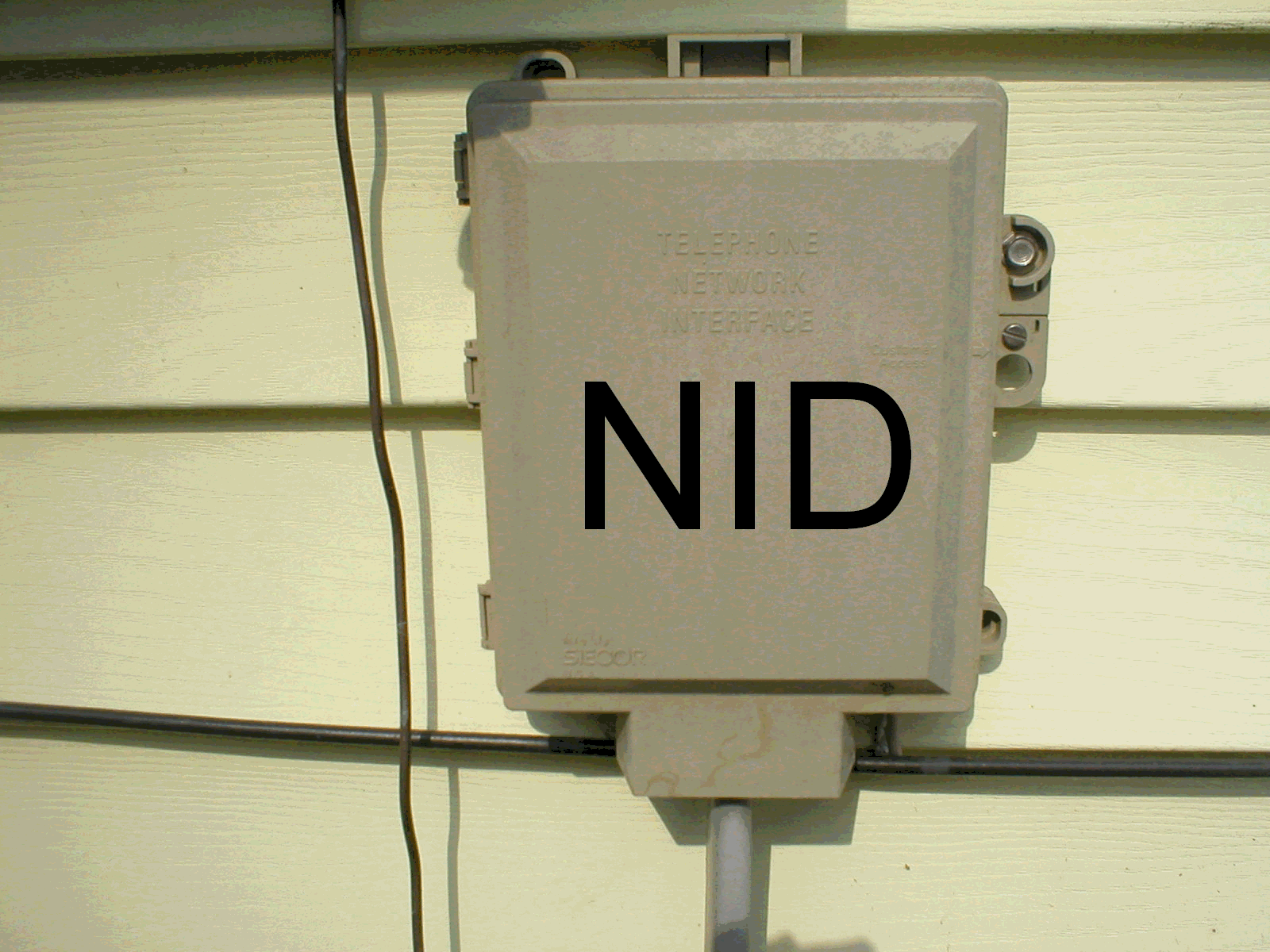| I'm sorry to tell you this, but, most businesses will not have
the standard "NID" that most residential customers have at their home. Network Interface Device: demarcation point between the Local Exchange Carrier and your equipment; it allows you the option of testing your lines.
The number of lines and the complexity of business telecommunications makes it impossible to provide a user friendly test point. If you have a standard NID, that's great, go ahead and read the instructions for testing your line by clicking here. Digital phone, click here.
Typical Equipment panel If you don't have a standard NID, you have no choice. You must call a professional that has the test equipment and knowledge needed to isolate and repair your problem. Click here to go to the work center and find a phoneman. Here are a few tips on how to determine who to call. If all lines are dead or noisy, the problem is with the local service provider, (LSP) most of the time. Your LSP is the company you pay for your local service. Check with their repair department and see if they have outages in your area. Report your lines even if they have outages. That way, someone will usually check to see if all your lines have been restored. They will usually restore the problem that puts the most customers back to work first and your report could help them restore your service more quickly. When only one or two of your lines are effected, it could go either way. There are fuses in the circuit that protects your equipment that could be bad, you could have a wiring problem, or it could be a LSP problem. Let cost dictate who to call. If the LSP will come out at no charge, let them test the line before you call your phoneman. If you have a maintenance agreement with your phoneman and there is no charge for him to come out, call him first. He will usually be there faster than the LSP and can tell you pretty quickly where the problem is. If both your local provider and phoneman charge for a visit, then it's up to you to decide which one you want to give your money to. If only one phone is in trouble and the lines are working ok on other phones, then you will need your private telephone man to troubleshoot the extension and make repairs. CAUTION: Some customers will change the telephone itself and fix the problem. If you do this, be sure it is the same model and type of phone. Digital systems are programmed in the back room equipment, not at the phone. If the buttons on the replacement phone are not programmed in the same pattern or sequence, it will really drive the user and your phoneman a little crazy. We recommend that you call your telephoneman and let him make the repairs before changing sets. TIP: Always get the manuals that come with any telephone or voice mail system purchase. A good technician will usually be able to program your system when the manuals are available. Have two people in the office familiar with your phone systems' operation, safeguard your manuals just as you would other important documents and know where they are stored. |
